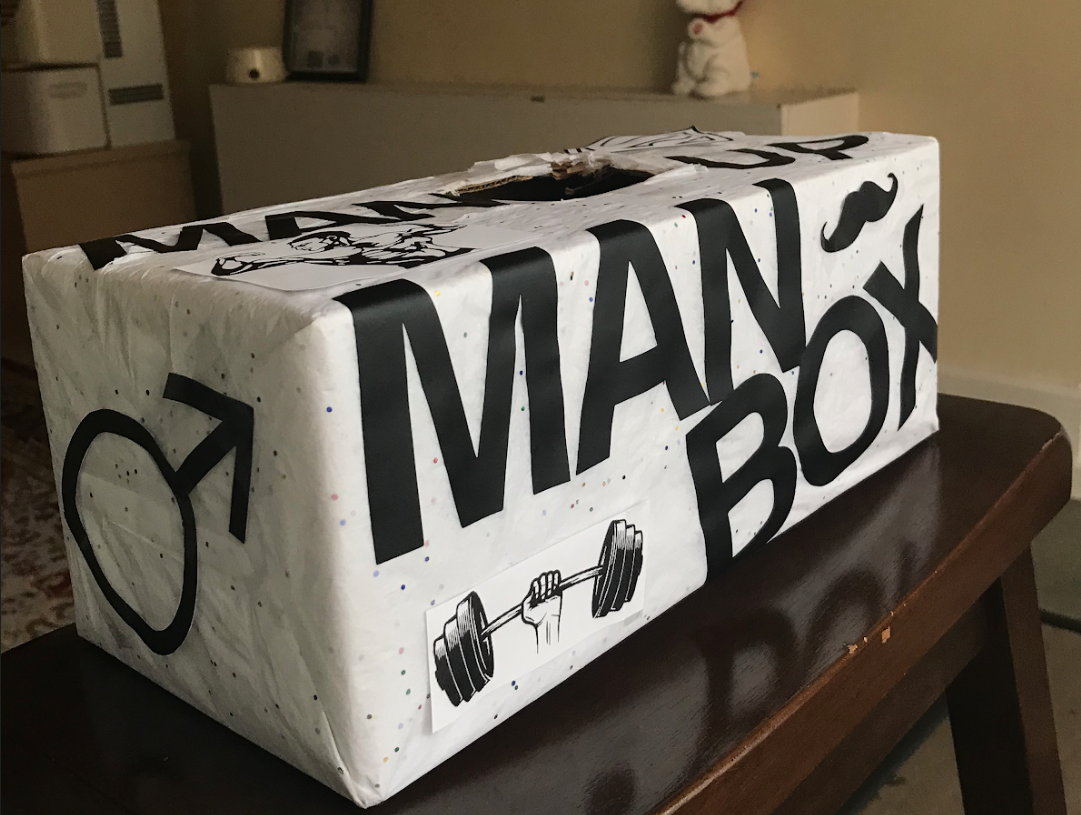The Office of Victims Assistance said that they have organized events for the Winthrop community to initiate conversations about trauma, but there were always some issues that were pushed to the side. These issues have begun to be brought to the forefront of their mission.
On Nov. 8, the OVA placed a “man box,” with masculine decorations on a small table in the Digiorgio center. To the side were slips of paper with phrases like, “because I am a man, I cannot be the victim of sexual assault.”
Keymo Williams, organizer of the event, said these quotes were stigmas surrounding men, dictating how society expects men to act. Visitors were told to crumple up the pieces of paper and push them down into the man box, which Williams said represents the “box” that society says men must fit into.
Williams said that most discussions of mental illness, whether it be in seminars, classes, or even casual conversation, often only encompass the thoughts and feelings of females. Williams said that he is hopeful this can be changed.
“The purpose of the event is to educate men and women, primarily men, about the effects of mental health and how trauma can sometimes not be associated with men because of their gender… We want to debunk those stereotypes,” Williams said.
Williams said that he would like for the man box to get people talking about unconventional mental health topics, specifically regarding men and the emotional issues they face that aren’t easily understood by the majority of people.
He said that depression, bipolar disorder, psychosis, schizophrenia, and eating disorders are the five major mental health problems affecting men. The event staff also said that they are hoping to bring attention to societal stigma surrounding men, specifically some traditional masculine ideas enforced on growing boys.
“The topic hits home for me… Being a man myself I remember hearing those things growing up: ‘toughen up,’ ‘you can’t cry,’ and all that. Being emotional, hearing that blocks me in a way. It makes me feel as if I can’t express myself correctly,” Williams said.
Many of the mental health problems that men face, according to Williams, are not so easily treated because it is difficult to find resources for men’s mental health.
“There are limited resources that are geared towards helping men. However, there are resources that serve men and women. For example, on campus, we have the health and counseling services office, the office of victims assistance, and out in the community we have agencies like Safe Passage that help with things like sexual assault,” Williams said.
Williams said that there are places where men can find help through counseling services such as NAMI, the National Association for Mental Illness, which is an organization that can provide resources for people who are unfamiliar with mental health topics and want to be educated.
Beyond formal education, Williams also stressed the need for public awareness and equality for both sexes on mental health issues and the stigma surrounding them.
“Men and women need to have these conversations, and events like this need to happen… Doing this event, particularly on the man box today, the men started out not recognizing what it was, and that is exactly what I wanted, and I was happy to hear that but also sad to hear that,” Williams said.




